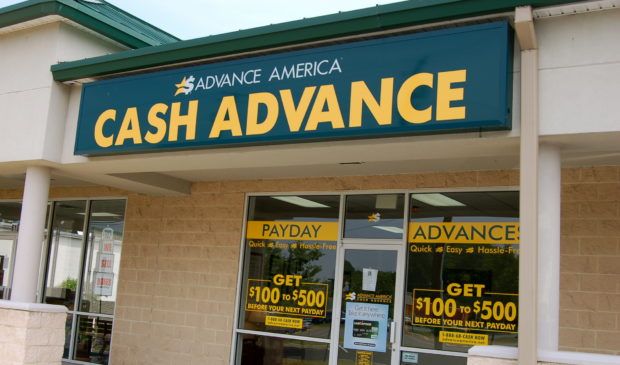Judge rejects city’s payday lender rules
Monday, May 1, 2017 by
Jo Clifton Austin Municipal Court Judge Ferdinand Clervi struck down a section of Austin’s payday lending ordinance in March, ruling that the ordinance’s limits on frequency and amount of installment payments are preempted by state law.
That ruling affected two separate cases in which the city charged the Money Store, which does business under the name Speedy Cash, and ACSO of Texas, doing business as Advance America, with violating the same sections of the ordinance.
If Clervi’s ruling is ultimately upheld, it will mean that Austin, and other cities that have similar ordinances in Texas, may no longer be able to protect consumers in the way that City Council envisioned when it enacted the ordinance.
On Thursday, the city filed appeals in both cases, saying the judge was mistaken when he ruled that state law overrules the ordinance’s limits. Appeals from Municipal Court rulings are extremely rare and are decided by a Travis County court at law judge.
Paul Lewis, who manages the program that oversees payday lenders’ compliance with the city ordinance, told the Austin Monitor this is the first time there has been such a ruling and appeal. The ordinance was enacted in 2012 and amended in 2015. It requires that loans from payday lenders establish a repayment agreement with no more than four installments.
According to an affidavit filed with the Municipal Court, a review and inspection of loan documents revealed that Speedy Cash entered into a loan agreement with Brenda Young on April 1, 2016. That agreement provided for a total transaction of $482.05, “to be repaid in five installments as follows: four installments of $49.50 each and a final installment of $284.05. The final installment includes the principal, the interest and a portion of the fee.”
There was a similar affidavit and complaint regarding ACSO doing business as Advance America.
Austin’s ordinance, Austin City Code, Section 4-12-22 (D), directs that proceeds from each installment must be used to pay at least 25 percent of the amount of the transaction, including the principal, fees, interest and any other charges the consumer owes to the lender. The ordinance is designed to protect consumers from lenders who require or encourage people to keep their loans active, piling up charges.
Lewis pointed out that Clervi ruled against the motion to quash the complaint that was filed by ACSO. Then, the Money Store filed its own motion to quash related to the complaint against Speedy Cash. The judge granted the second motion, which had the effect of dismissing the case against Speedy Cash. After that, Lewis noted, the judge returned to the Advance America case and changed his ruling, so that both cases were dismissed.
The state law, Texas Finance Code section 393.602 (b), specifically states that the state does not have the authority to establish a limit on the fees charged by “a credit access business,” legal language for payday lenders.
The lenders also argued in their motions to quash that Austin’s ordinance directly conflicts with the penalty provisions of state law.
The city code also requires payday lenders, or credit access businesses, to register with the city of Austin and pay a fee in order to operate in Austin.
According to information from the city’s website, there were 122 payday loan businesses operating in Austin in Fiscal Year 2014 and 104 such businesses in FY 2015. The department was budgeted to handle 121 payday loan businesses in FY 2016. However, Lewis said the actual number was about 50 storefronts.
Asked about the decline, Lewis said, “Some have moved online and some have moved to neighboring communities that don’t have ordinances. And some have just closed and gone away.”
The department does an annual audit of the different payday loan facilities and sends each audit to the lender involved, Lewis said. If they find a lender apparently violating the city ordinance, auditors will do a follow-up audit to see if anything has changed, he said.
The Monitor asked Jamie Fulmer, who is with the South Carolina office of ACSO, whether the company was challenging regulations in cities other than Austin. He said he was not aware of any.
Photo by Taber Andrew Bain made available through a Creative Commons license.
The Austin Monitor’s work is made possible by donations from the community. Though our reporting covers donors from time to time, we are careful to keep business and editorial efforts separate while maintaining transparency. A complete list of donors is available here, and our code of ethics is explained here.
You're a community leader
And we’re honored you look to us for serious, in-depth news. You know a strong community needs local and dedicated watchdog reporting. We’re here for you and that won’t change. Now will you take the powerful next step and support our nonprofit news organization?



